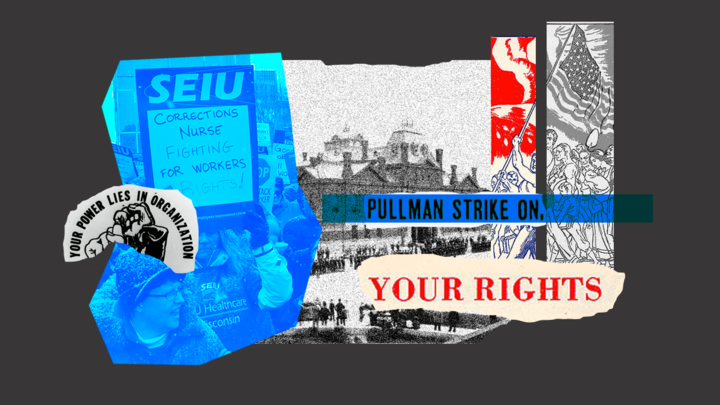How Unions Benefited My Mom—and Me

This May Day, we join with workers across the country as they lift their voices in solidarity with working people, families, and communities. I know firsthand how critical it is for working people to have the support and protection of a union. I’m a proud member of NWLC United, and both of my parents were/are active union members. My mom, Lorita, has been a registered nurse for 35 years, and has been active in her union for 33 of those years—my whole life. Growing up, I had the privilege of watching her advocate for herself and her colleagues as both a member and a leader within her union. 1199SEIU has become like a second family to us.
Recently, my mom and I sat down and she shared some of her experiences as a union member and how they have impacted her as a worker. As she explained, unions provide workers a voice and collective power. And unions mean safer workplaces, higher wages, and better benefits and working conditions. For women, these benefits are particularly meaningful, given the notable wage improvements that women who are union members experience, along with other benefits such as paid family and medical leave and sick days, health insurance, and retirement benefits.
Victoria (V): When did you first join your union? What made you want to become active?
Lorita (L): I technically was a union member from my first day of employment in 1990; I became active in 1992. It was the Professional Staff Nurses Association (PSNA) of Maryland back then. All RNs in the system were part of the union. Initially, I was asked to be an advocate, but I understood that if I didn’t speak up for me and my peers, nobody else would. I was first just asked to pass along information to others and got more involved as time went on.
V: Has your union faced any major obstacles from your employer(s)?
L: Absolutely! Often, the [hospital] system used different tactics to chip away at our contract. They have been known to pit members against union leadership by saying “the union won’t let us do XYZ.” We’re currently in a battle for better staffing [coverage] and [higher] wages.
V: What are the most significant things you’ve bargained for over the years (e.g. pay increases, more PTO, etc.)? Did any of them successfully make it into a contract?
L: The most significant thing was probably obtaining reduced patient-to-nurse ratios. The nurses held a two-day strike in 1997 related to this. Most hospitals without a union don’t have guaranteed patient-to-nurse ratios. We have always tried to bargain for higher pay, and while we do see gains, we usually have to compromise after reaching an impasse with hospital leadership. Fortunately, we do have a transparent pay scale (clearly outlined in our contract and visible through the hospital’s intranet), which helps level the playing field for workers.
V: What are some things you wouldn’t have if you weren’t part of a union?
L: If I weren’t part of the union, I wouldn’t have had permanent shifts. Before [union] contracts, there were rotating shifts, meaning management could schedule you to work whenever. I also wouldn’t have had a cap on weekend commitments, which meant nurses with higher seniority were not obligated to work as many weekends as others.
The union obviously allowed for grievance procedures; otherwise management can fire you with no recourse. I wouldn’t have had step increases in pay, or guaranteed/paid breaks.
Overall, not being part of a union would have meant not having the ability to advocate for myself and colleagues and clearly reference contract violations by management.
V: Would you say that being part of a union has improved your quality of life? If so, tell me how.
L: Yes it has! I know I have the support of other members as a health care worker, and the contract language helps us keep (mostly) safe ratios. Camaraderie among union members is strong; we’re like a family. I’ve also learned a lot about my rights as a citizen by attending Lobby Day with the Union.
V: Has being in a union made you feel like you have more power/control over your future?
L: Absolutely. It’s allowed me to know that what I do as a nurse/delegate benefits me, my patients, my coworkers, and my community. It’s allowed me to have a voice.
My mom is retiring from nursing this summer, so her union has its work cut out to find someone to fill her shoes. But I’m proud to help carry on her legacy as an advocate for better pay, better working conditions, and a better quality of life for all working people.




